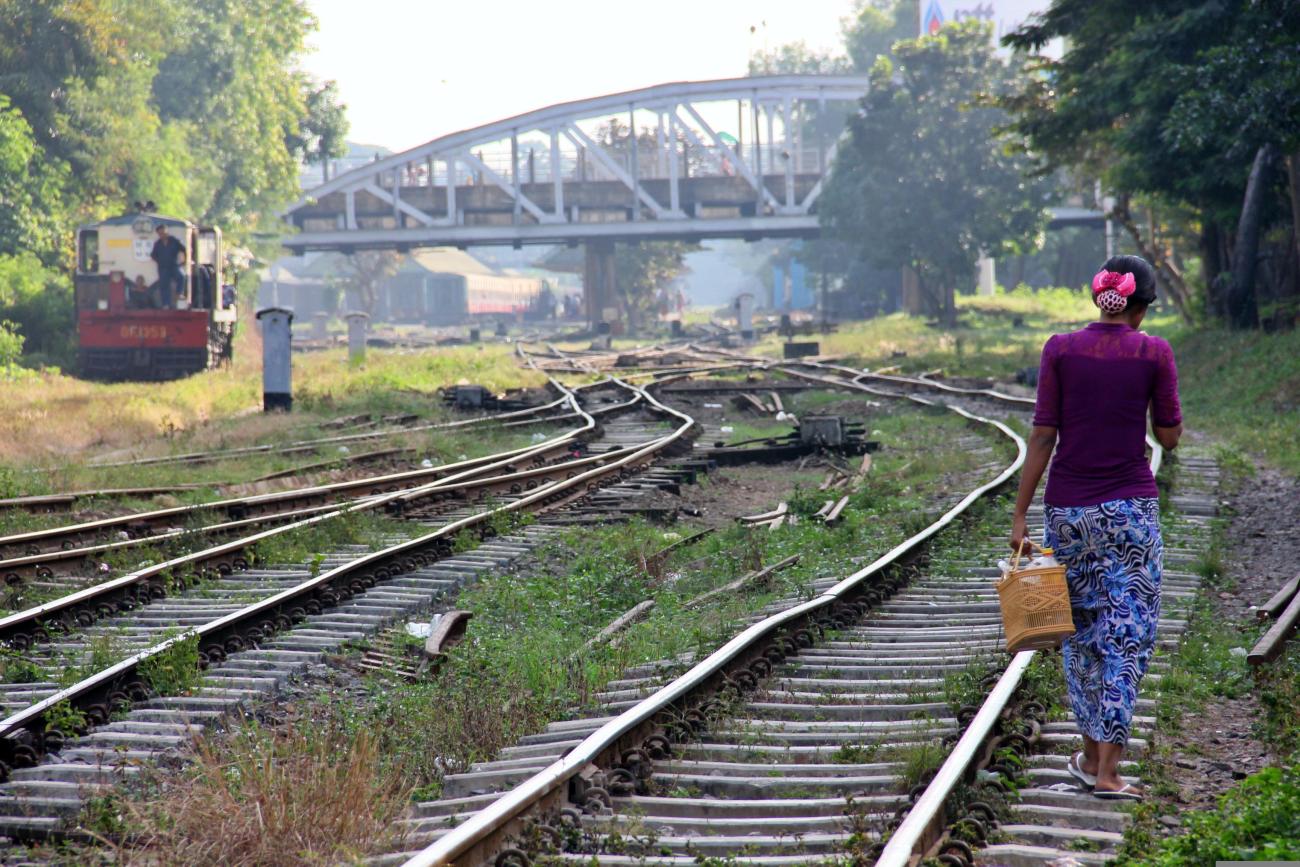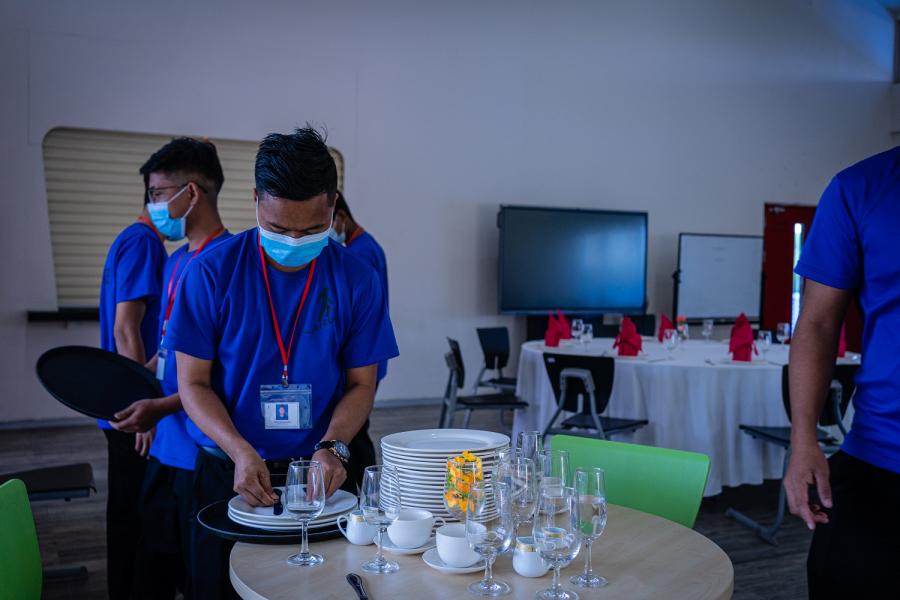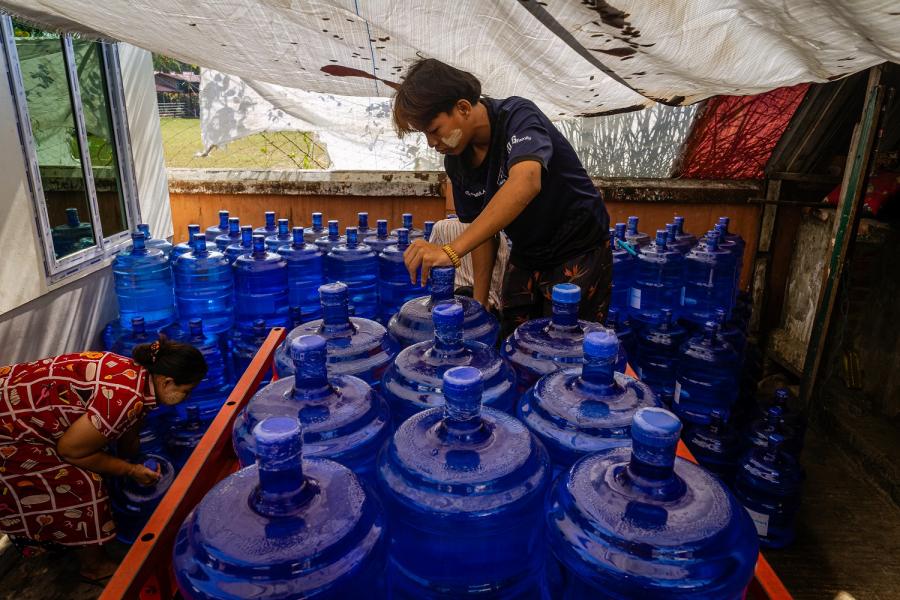Quarter of residents in Yangon's poorest areas often go without income

A quarter (24.1 percent) of people living in eight of Yangon's poorest townships have often not had any income in the last 12 months, a new UNDP report shows.
This is forcing people to adopt coping strategies that threaten their health and wellbeing, including cutting down on how much they eat and consuming less nutritious food, selling assets, such as vehicles, and forgoing medical treatment.
These insights come from a survey of 3,000 people in Yangon, two-thirds of which are from eight townships where a new joint initiative between UNDP, UN Women and UN-Habitat will work to improve the wellbeing of the most economically marginalized. The report found people living in these eight areas are worse on every economic and social indicator when compared to the rest of Yangon.
The collapse of the economy in 2021 and only very modest growth last year has had a devastating impact on Yangon's urban poor. Foreign investors pulling out of Myanmar, leading to the closure of businesses and factories, has severely reduced both working hours and employment opportunities, while rising food and fuel prices have further squeezed people's spending.
Coping strategies in Myanmar as incomes fall
With incomes reduced, 27.5 percent of respondents to the survey from the eight urban resilience project townships reported that in the last 12 months there was a time when someone in their household could not eat nutritious food due to lack of money and more than a third (35.7 percent) said they were eating less.
With the public healthcare system weakened, the survey found that people are now reliant on more expensive private hospitals and clinics to meet their medical needs. Yet, with incomes squeezed, many people in Yangon are simply forgoing healthcare. Over a quarter of all respondents (26.6 percent) said they or their family often or sometimes go without treatment or medication, and three-quarters said it is the higher charges that makes accessing healthcare more difficult.
More than two-fifths (43.4 percent) of respondents from the eight townships reported selling assets in the last 12 months. When these assets are used to generate income, such as vehicles, it can make it even more difficult to earn money and recover.
One of the most extreme coping mechanisms was how families interrupted their children's education in order to work, cited by a quarter of households in the eight surveyed townships who had reported taking their children out of school since March 2020. These lost years of education will impact their ability to seek better employment in adulthood.
"Urban poverty in Yangon has dramatically escalated, and at the heart of this is a loss of jobs and reduced incomes. Supporting people to earn more money through stable employment is a long-term and sustainable way to improve people's health and wellbeing," said Titon Mitra, Resident Representative at UNDP Myanmar.
How can we help Yangon's urban poor?
The new UNDP Urban Resilience Project will aim to improve people's income and employment opportunities, with a focus on vocational training for young people, support to micro and small enterprises, and improved access to healthcare services and clean drinking water.
Pilot activities in Yangon's Hlaingtharya township over the last year saw significant success. Together with the Step-in Step-up Academy (SISU), UNDP supported 400 students to complete vocational training programmes in areas such as hospitality, healthcare and office work. All the students who graduated have now secured full-time employment.

"To work in hospitality has always been my career goal. But the biggest challenge for me is that I do not have any related work experience, nor do I have any qualifications or connections in this field. And I cannot afford to attend the training, not even some short courses. I have been so lost and hopeless," said Yan Naing Tun, 24-year-old current SISU student.
"Now, I have a lot of plans for my career and the future. I would like to use half of my salary to support my family as there are six of us. My two youngest siblings really could use that money to help with their education."
The project also builds upon our UN partner agencies' work in urban Yangon. UN-Habitat has been increasing the availability and quantity of water through improving drainage and wastewater management. UN Women, meanwhile, has been connecting marginalized women with basic services and offering coaching to improve their access to income.

The Urban Resilience Project will reach more than 450,000 people in 2023, helping to reduce their reliance on humanitarian assistance. It is part of a wider UNDP response in Myanmar that has supported one million people across 11 states and regions, and aims to reach seven million by the end of 2024.
All UNDP's activities are impartial, neutral and independent, and delivered directly to communities.
Read the Helping Communities Weather the Socio-economic Downturn: Building Urban Resilience report in full.



